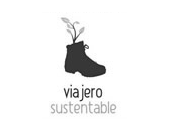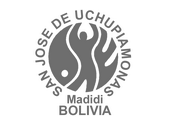At the Ecolodge
WATER: The ecolodge sources its waters from a fresh water spring. It’s stored in tanks and distributed through a pumping system. Please try not to waste it.
LIGHTS: A generator runs between 18:30-22:30h to provide lighting to communal areas. Outside of these hours, please be aware that lighting is by candles only.
WASTE: We use a composting system to dispose of organic waste. Other types of inorganic wastes are taken back to Rurrenabaque for recycling.
CAPACITY: The lodge can host no more than 18 people. This helps us provide a high-quality, personalized service and take care of the natural environment.
COMMUNICATION: Please note there is no phone service or wifi. The lodge uses a radio system to communicate with Rurrenabaque.
CONSTRUCTION: All materials used to construct the lodge (wood, stones, leaves, etc.) are entirely natural. They have been selected to avoid damaging the environment.
TRAIL SYSTEM: We have a 40km-long trail network around the ecolodge. Each trail has been designed in order discover the varied flora and fauna with care to minimise environmental impact. Trails may only be explored if accompanied by a local guide.
FAUNA: Many wild animals inhabit the area. Please respect their natural habitat by being quiet and keeping your distance.
FLORA: The lodge is surrounded by protected primary forest where pursuits such as logging are forbidden.
COHABITATION: For the welfare of all, please report any problem or need to the staff.
OWNERSHIP: The Madidi Jungle venture is operated and managed 100% by indigenous families from San José de Uchupiamonas.
WATER TREATMENT: The water in the bathrooms and kitchen is treated by an infiltration system. This system is reusable over time.
OTHER SUSTAINABLE TIPS
Following these simple recommendations will help YOU to help US preserve the natural and cultural heritage of Madidi Jungle for the future.
Arriving to your Destination
- Choose the most direct route to your destination to reduce carbon emissions. When possible, travel by public transportation. Minimize your layovers (the greatest amount of carbon is used during take-off and landing).
- Ask us for information on responsible tourism policies. Make sure you know how to minimize environmental impact and support the local economy.
- Read about the local cultures and learn a few words in the local language.
- Don´t travel with excess baggage - throwing away waste is difficult in remote areas and especially in developing countries.
- Ask the locals for specific advice on how to make your trip a responsible one.
- Enquire about any useful gifts that you can give your hosts, the locals or schools.
During your trip
- Choose tours with social, cultural, economic and environmental integrity. Low prices can often mean low salaries and poor service.
- Buy local products instead of imported ones to ensure that your money stays with the locals.
- When possible, stay at locally-owned accommodation.
- Hiring a local guide can help you learn more about the local culture and landscape.
- Avoid products made from threatened species such as furs, bones or feathers.
- Respect the local culture and customs. Make a habit of asking questions to better understand the traditions of the local people.
- Don’t treat people like part of the landscape. Always ask permission before taking pictures of them.
- Take public transportation, rent a bicycle or walk around to reduce environmental impact and get to know the area.
- Use water responsibly - it is very valuable in many countries and tourists tend to use more than the local population.
- Respect with rules of the protected areas. Hunting, logging or damaging the jungle is strictly forbidden in all tourist areas.
- Protect the fauna and flora. Do not disturb or feed the wild animals as you may pass on human disease.
- Be mindful of your waste. Use biodegradable products and be aware of the scarcity of resources such as water, fuel and electricity.
Upon your return
- Write to us and to your tour operators with suggestions on how to make the experience better, especially regarding the reduction of environmental impact and benefits for the local communities.
- If you have promised pictures or gifts to the local population, remember to send them. Many promise but not everybody keeps their promise!















